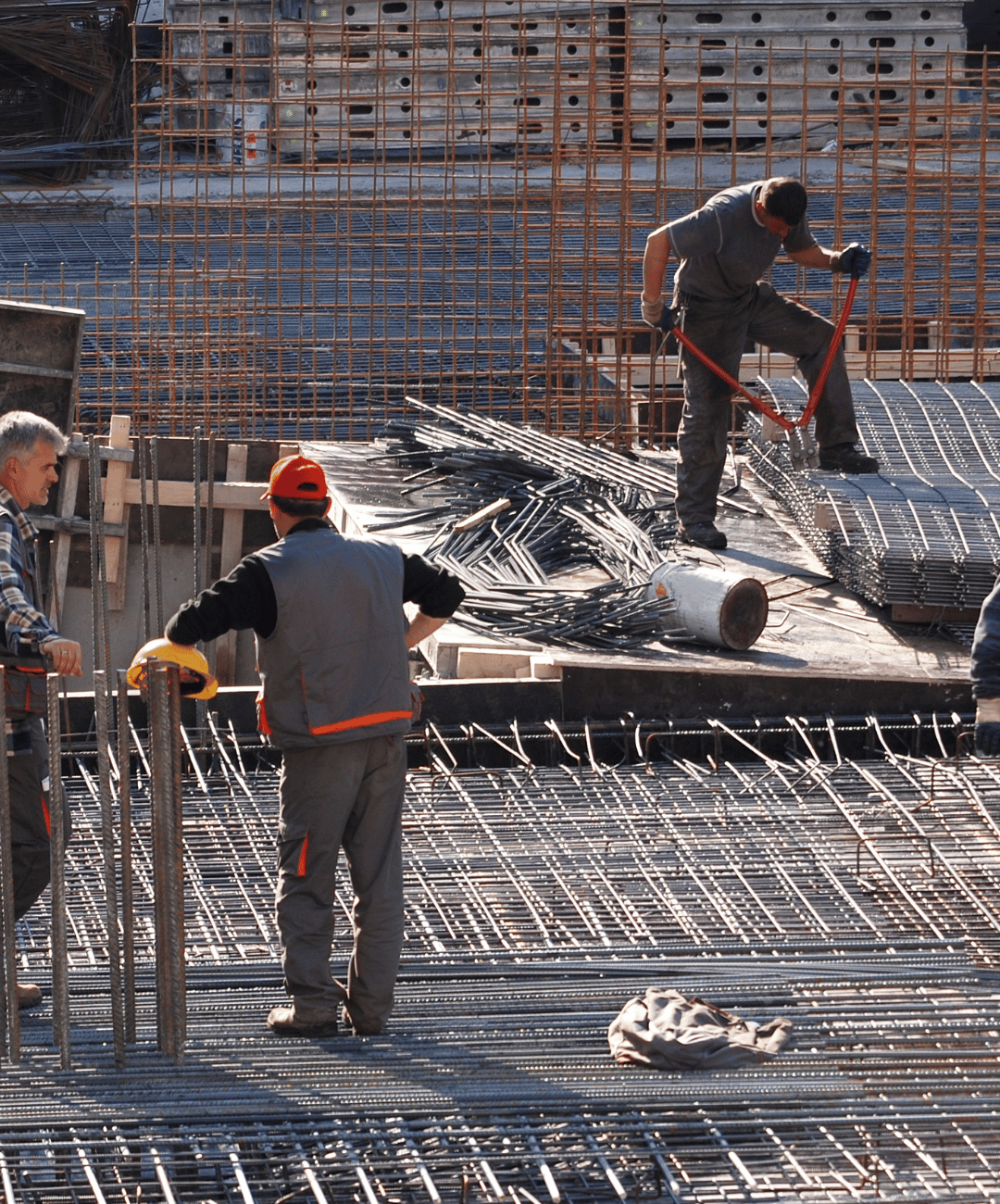Prevailing Wage Illinois: Basics and Violations
Did you know that 32 states have prevailing wage laws on the books? These laws, sometimes known as “little Davis-Bacon laws” dictate the fair pay of workers and laborers for their work. One of the states with relatively complex prevailing wage laws is Illinois, the Land of Lincoln.
In Illinois, there are two different sets of laws that govern prevailing wage: the Prevailing Wage Act and the Illinois Procurement Code. Together, these laws help ensure laborers of all types are protected. In this article, we’ll be covering the basics of Illinois prevailing wage, such as Illinois prevailing wage rates and the consequences of violating prevailing wage.
Are you outside of Illinois? We’re doing a roundup of some of the most complex prevailing wage laws in the country.
The Basics of Illinois Prevailing Wage
Prevailing wage is the practice of paying a set rate to all skilled tradespeople such as carpenters, electricians, and laborers on publicly funded projects. Essentially, it means paying all of one type of laborer the same rate, based on the going rate of labor in your region.
In Illinois, prevailing wage is governed by two separate laws, the Prevailing Wage Act, which governs construction rates, and the Illinois Procurement Code, which governs other types of labor, including janitorial cleaning services, window cleaning services, food services, security services, and printing rates.
What is a Public Works or Publicly Funded Project?
In this case, a publicly funded, or public works, project is any project “funded or financed in whole or in part with bonds, grants, loans or other funds made available by or through the State or any of its political subdivisions, or undertaken by an institution supported in whole or in part by public funds.”
Essentially, any project funded by public money is considered a public works project, which makes prevailing wage laws broadly applicable, and especially important for contractors and subcontractors to understand — and apply.


Who Sets the Prevailing Wage?
In Illinois, the state Department of Labor (IL DOL) is responsible for setting the prevailing wage. The prevailing wage is set by county or locality, as well as the type of work being performed.
Public bodies in each county or locality are responsible for notifying contractors and subcontractors of changes to the prevailing wage rate. This is important because the prevailing wage rates in Illinois change more frequently than those in other states, with changes occurring nearly monthly.
Given the number of counties in Illinois with different prevailing wage rates, it’s important to be aware of the specific prevailing wage rates in your area. Current prevailing wage rates can be found here.
Who Enforces Prevailing Wage?
In this case, a publicly funded, or public works, project is any project “funded or financed in whole or in part with bonds, grants, loans or other funds made available by or through the State or any of its political subdivisions, or undertaken by an institution supported in whole or in part by public funds.”
Essentially, any project funded by public money is considered a public works project, which makes prevailing wage laws broadly applicable, and especially important for contractors and subcontractors to understand — and apply.

Illinois Department of Labor Rate Management Improvements
Illinois continues to update prevailing wage rates more frequently than most states, with changes occurring monthly in many counties. Recognizing the challenge this creates for contractors, the Illinois Department of Labor has implemented several improvements throughout 2025 to help contractors manage these frequent changes more effectively:
- Improved email notification systems that provide advance warning of upcoming rate changes, typically 30 days before effective dates
- Customizable alerts that allow contractors to subscribe only to specific counties or trades relevant to their work
- Text message alerts for critical rate changes that significantly impact project budgets
- Calendar integration that allows contractors to sync rate change dates with project management systems
- Mobile-friendly rate lookup tools designed for field use, allowing supervisors to verify rates on job sites
- Enhanced search functionality that allows contractors to compare rates across counties and time periods
- Historical rate tracking database that helps with project budgeting and long-term planning
- Rate change impact calculators that estimate budget implications of upcoming adjustments
- Integration partnerships with major payroll software providers for automatic rate updates
- API access for larger contractors to build rate data directly into custom systems
- Bulk download options for contractors managing multiple concurrent projects
- Standardized data formats that work with common spreadsheet and accounting software
- Regular webinars explaining rate determination methodologies and how to interpret rate schedules
- Dedicated helpline for contractor questions about rate applications
- Enhanced website resources including video tutorials and step-by-step guides
- Quarterly contractor forums where DOL staff address common questions and concerns
Prevailing Wage Obligations: Public Entities and Contractors
Prevailing wage obligations go beyond just paying workers for their work and benefits.
Public entities soliciting bids for public works projects must appropriately categorize workers and prevailing wage rates in their requests for bids. Additionally, the terms of the prevailing wages must be included in the contract. If there is no public bid process, the public entity must still send a written notice to their contractor indicating that all laborers are to be paid prevailing wage.
Contractors must clearly state that they are paying prevailing wage on any given public works project. This can be done by inserting stipulations into each subcontract related to prevailing wage, stating that all workers are to be paid at least the prevailing wage rate. They must also post the prevailing wage rate on the job site or, if that isn’t possible, at the contractor’s place of business. If neither of those is possible, they must send a written notice to each worker on the project.
In addition to the requirements related to communicating the prevailing wage, contractors must submit certified payroll reports every month, and retain records for up to three years, just in case. Beyond reporting on prevailing wage hours, contractors and subcontractors must report on “non-prevailing wage hours,” which are hours worked on a project outside of the public works project being reported on in the certified payroll report. This could be other public works projects or other projects in general, but it is necessary to ensure that employees are being paid fairly even outside of prevailing wage.
What to Know About Prevailing Wage Violations
As noted above, the IL DOL is responsible for enforcing prevailing wage. That means the IL DOL is responsible for investigating claims and doling out penalties, if applicable.
If there is a violation, there are significant consequences. Beyond owing the unpaid wages to the worker, contractors will owe up to 20% of the worker’s owed salary as a penalty to the Department of Labor. If the contractor continues to make violations, the penalty will be increased to 50% of the worker’s owed salary. If a contractor incurs two violations within a five-year period, they will be added to the debarment list, which effectively bans them from working on public works projects for an additional four years.
Luckily, if a contractor or subcontractor makes a mistake on their Illinois certified payroll reporting, they are able to correct it up to the 15th of the following month.
Cook County-Specific Requirements and Enhanced Obligations
Cook County, which includes Chicago and numerous suburban municipalities, has some of the most complex prevailing wage requirements in Illinois due to overlapping jurisdictions, specialized project types, and enhanced workforce development mandates. The county maintains enhanced apprenticeship utilization ratios for certain trades that exceed state minimum requirements, along with additional reporting requirements for projects exceeding $1 million in total contract value. Cook County has specialized wage classifications for transportation and infrastructure projects, including CTA and Metra work, with more frequent rate updates than other Illinois counties—sometimes occurring bi-weekly for high-demand trades. Enhanced enforcement includes dedicated county compliance staff conducting regular audits, making accurate documentation and timely submissions critical.
The challenges of working in Cook County stem from multiple overlapping jurisdictions including county, city, township, and special districts, each with potential additional requirements. Wage rates are typically higher than many other Illinois counties, requiring careful budget planning, and complex project approval processes may involve multiple government entities. Enhanced documentation requirements for workforce diversity and local hiring efforts add another layer of compliance that contractors must manage alongside standard state prevailing wage obligations.
Expanded Chicago Requirements: Navigating Municipal Complexity
The City of Chicago maintains some of the most comprehensive and stringent prevailing wage and workforce requirements in Illinois, with contractors working within city limits navigating multiple layers of municipal requirements that exist alongside Cook County and state obligations. The city enforces local hiring preferences with specific neighborhood targeting, enhanced workforce diversity tracking with quarterly demographic reports, and specialized requirements for TIF district projects that often include additional community benefits. Projects for different Chicago agencies carry unique requirements: Chicago Public Schools projects require separate contractor pre-qualification, enhanced background checks, and unique certified payroll formats with work scheduled to minimize educational disruption; Chicago Transit Authority projects involve enhanced safety protocols for workers in active rail environments, specialized trade classifications for signal and third rail work, and 24/7 schedule coordination; and Chicago Housing Authority projects combine federal Section 3 hiring requirements with prevailing wage obligations, mandating employment opportunities for low-income residents alongside tenant protection protocols.
Successfully navigating Chicago's multi-jurisdictional environment requires early identification of all applicable requirements during project bidding, robust tracking systems capable of managing multiple reporting requirements simultaneously, and often the engagement of local expertise through partnerships with contractors familiar with Chicago's regulatory landscape. Projects may involve Business Improvement Districts, the Chicago Park District, or designated opportunity zones, each adding specific requirements. The key to success is recognizing that standard Illinois prevailing wage compliance is just the starting point, Chicago's enhanced requirements demand additional planning, documentation, and specialized knowledge to ensure full compliance across all applicable jurisdictions
Deep Dive on Illinois Prevailing Wage: The Forms to Know
With all the prevailing wage laws and certified payroll reporting documentation necessary for public works projects, it can be hard to keep everything clear in your mind. That’s why we’re doing a deep dive into the forms that are most important to know when it comes time to document that you’ve paid prevailing wage.
Illinois Department of Labor Certified Transcript of Payroll
The IL DOL certified payroll reporting form is called the Certified Transcript of Payroll, and it requests information on the contractor or subcontractor, public works project, and worker. It helps ensure that contractors and subcontractors are paying the prevailing wage and fringe benefits to all workers on a public works project. An example of this form can be found here.
Federal: WH-347
In addition to state certified payroll reporting, don’t forget that you must submit federal certified payroll reports, too. Form WH-347 is the federal version of certified payroll reporting. To file this form, you will need employee or laborer information, work classification, hours worked, rate of pay, amount earned, and deductions.
Simplify Your Illinois Prevailing Wage Reporting
Prevailing wage in Illinois can be complex. From different rates by county to understanding reporting requirements and necessary forms, it can be hard to keep track of all the obligations a contractor or subcontractor has.
That’s where Certified Payroll Reporting comes in.
Our software, Certified Payroll Reporting, supports businesses of all sizes to manage the data and reporting necessary for government contracts. With Certified Payroll Reporting, powered by Points North, you’ll remain compliant, reduce costs, save time, and minimize compliance risk
